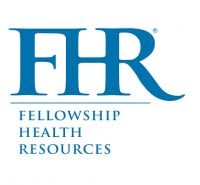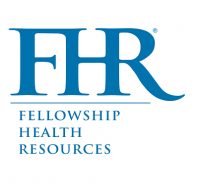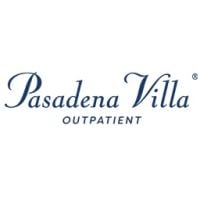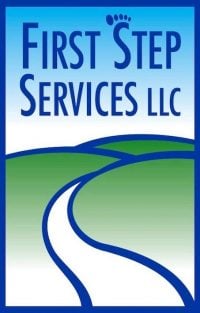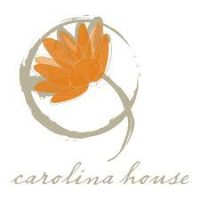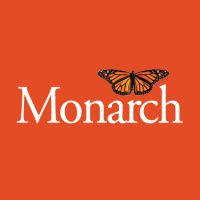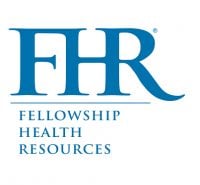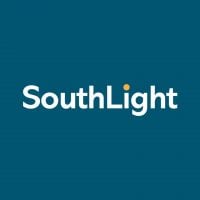About This North Carolina Facility
Fellowship Health Resources - Cary is a provider of mental health and addiction services, located in Cary, North Carolina. They offer a wide range of evidence-based treatment programs to help individuals and families struggling with mental health and substance use disorders. Their individualized approach focuses on the patient's physical, psychological, emotional, and spiritual health, with the goal of creating lasting recovery and improved mental health. In addition, they provide a variety of support services, such as family support, educational groups, and crisis intervention.
Fellowship Health Resources - Cary utilizes a multi-disciplinary approach to recovery that includes cognitive-behavioral therapies, trauma-informed and culturally-sensitive treatment, and recovery-oriented treatment. Their treatment modalities also include medication management, 12-step facilitation, relapse prevention, and aftercare management. They are accredited by the Commission on Accreditation of Rehabilitation Facilities (CARF), and their highly-trained and dedicated clinicians hold various state licenses, including Licensed Clinical Addictions Specialists.
Genders
Ages
Modality
Additional
Accreditations

CARF
The Commission on Accreditation of Rehabilitation Facilities (CARF) is a non-profit organization that specifically accredits rehab organizations. Founded in 1966, CARF's, mission is to help service providers like rehab facilities maintain high standards of care.
Conditions and Issues Treated
Substance abuse typically leads to addiction, which requires specialized treatment programs at Fellowship Health Resources - Cary to address. Many people benefit from inpatient drug rehabilitation, which includes inpatient acute care and residential rehabilitation. Other levels of care include intensive outpatient therapy, individual counseling, and support groups. Family therapy is also an essential part of treatment for substance abuse.
A combination of treatments is often needed to treat drug abuse issues effectively. In the case of drug abuse, there is no easy answer or one-size-fits-all cure.
Opioid addiction treatment helps people addicted to opioids in North Carolina curb their drug use. The selection of a treatment setting depends on the severity of the addiction. Mild cases are usually treated in outpatient facilities; severe cases need hospitalization or treatment in a residential facility. Doctors use medicines along with counseling and behavioral therapies to treat the addiction. The treatment includes medication, counseling and therapy. It can also include group counseling, individual counseling and family counseling.
People with dual diagnosis have coexisting addiction and a mental disorder. 9.2 million US adults had a co-occurring disorder in 2018, so not just limited to North Carolina residents. Best treatment combines medication, psychotherapy (talk therapy), support group, and inpatient rehabilitation. Sometimes, complementary therapies – yoga, massage, and acupuncture – may also be used.
Levels of Care Offered at Fellowship Health Resources - Cary
This center offers a variety of custom treatment tailored to individual recovery. Currently available are Aftercare Support, Drug Rehab, Dual-Diagnosis, Intensive Outpatient, Outpatient, with additional therapies available as listed below.
Fellowship Health Resources - Cary offers an Intensive Outpatient Program is for those who need intensive care but prefer to spend the majority of their time in the comfort of their own home. The rehabilitation services differ in length and intensity. They are customized to meet the needs of the patient.
Outpatient treatment plans cover diagnosis, detoxification, management, and counseling. They are a popular option for those who have graduated from inpatient facilities. Services in North Carolina include medication-assisted treatment (MAT) and individual and group therapy.
After treatment, addiction treatment can be frightening for newly sober people. Aftercare support provided by Fellowship Health Resources - Cary is designed to give resources and help on a continued basis. It can involve finding housing in and around North Carolina, setting up 12-step meeting groups, continued medical monitoring, and counseling.
Therapies & Programs
Couples therapy aims to rebuild the trust between the partners. Partner’s involvement in the process will result in greater chances of treatment success. Couples therapy addresses financial issues, loss of trust, lack of intimacy, and physical abuse.
Family therapy is a set of therapeutic approaches that assumes that the entire family is a system. It utilizes the strengths and resources of the family to help the patient refrain from resorting to substance abuse. The impact of substance abuse is not just on the patient but on the entire family. Family therapy ensures that the patient gets adequate support from the family members after the treatment making the recovery process sustainable
- Family therapy guides all the members of the family to help the patient.
- It helps to repair relationships and improve communication between family members.
- It helps to keep the patient engaged and motivated throughout the treatment.
Group therapy is an important tool in recovery. Finding a peer group in Cary, NC and others who relate to your situation is a fundamental tool for recovery at Fellowship Health Resources - Cary. Addiction tends to lead to isolation and feelings of uniqueness. The accountability and friendship that is found in group therapy can be more effective than any single other treatment approach. This is generally introduced early in recovery and is recommended as a lifetime treatment habit.
Trauma therapy is a way of addressing trauma while in a safe situation in order to heal. This may involve Fellowship Health Resources - Cary managing individual or group counseling or both. Other forms of therapy have been proven to assist in healing past traumas.
A type of cognitive-behavioral therapy is Dialectical Behavioral Therapy. It is intended for those who are vulnerable to self-harm and suicidal thoughts. Fellowship Health Resources - Cary aims to help patients understand the connection between their feelings, emotions, and behaviors and provide them with the tools to make a difference in Cary, NC. For those whose addictions and habits originate from severe mental health problems, it is beneficial.
Negative feelings are common in substance abuse disorders. If not recognized, they can cause co-occurring disorders. CBT involves strategies that help to change the thinking and behavioral pattern. It can be administered as a monotherapy as well as a part of combination therapy.
The first three steps depend on the patient, so they are more specific and situational. The succeeding four steps center on practical issues brought on by substance abuse. Steps 8 and 9 deal with the social and emotional repercussions of addiction, encouraging patients to make amends to people they have wronged. These are followed by two steps revolving around the further exploration and reinforcement of Steps 1 to 9.
The last step requires an individual to extend a helping hand to people who are still in the early stages of their recovery.
Payment Options Accepted
For specific insurance or payment methods please contact us.
Is your insurance accepted?
Ask an expert, call (888) 674-0062
Additional Details
Specifics, location, and helpful extra information.
Cary, North Carolina 27511 Phone Number(919) 469-4980 Meta DetailsUpdated November 25, 2023
Staff Verified
What else do people call Fellowship Health Resources – Cary?
People have occasionally also searched for “Fellowship Health Resources in North Carolina”
Patient Reviews
There are no reviews yet. Be the first one to write one.
Cary, North Carolina Addiction Information
North Carolina ranks 29th in the nation for overall substance abuse. Many of the drugs abused in the state are illicit, and many of these are opioids. Prescription opioids are readily available due to the high rates of medical workers prescribing them. The number of prescriptions has increased tenfold since the 1980's. Opioid overdoses are the most common type of death in North Carolina.
Heroin is the most commonly abused drug in Cary, North Carolina. 68% of overdose deaths were from opioids (including prescription opioids and heroin). Drug addiction and abuse can lead to crime, violence, and health problems. There are many different rehab centers in Cary, North Carolina, so it can be difficult to know where to start. The important thing is to find a facility that will meet your specific needs.
Treatment in Nearby Cities
- Shelby, NC (159.0 mi.)
- Murphy, NC (300.2 mi.)
- Fuquay-Varina, NC (14.1 mi.)
- Banner Elk, NC (175.2 mi.)
- Gold Hill, NC (89.7 mi.)
Centers near Fellowship Health Resources - Cary
The facility name, logo and brand are the property and registered trademarks of Fellowship Health Resources - Cary, and are being used for identification and informational purposes only. Use of these names, logos and brands shall not imply endorsement. RehabNow.org is not affiliated with or sponsored by Fellowship Health Resources - Cary.
